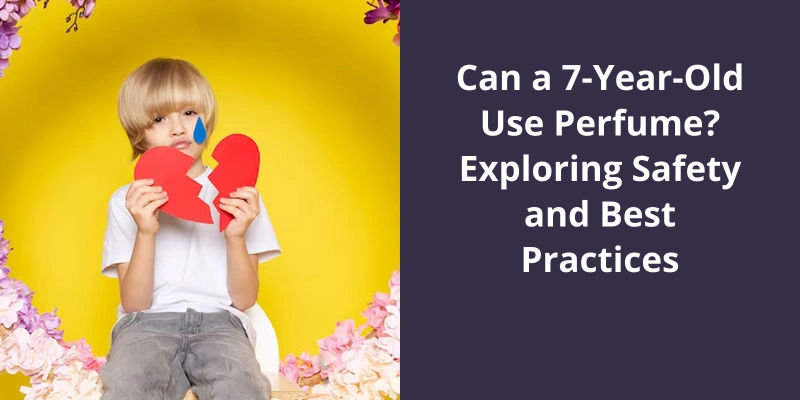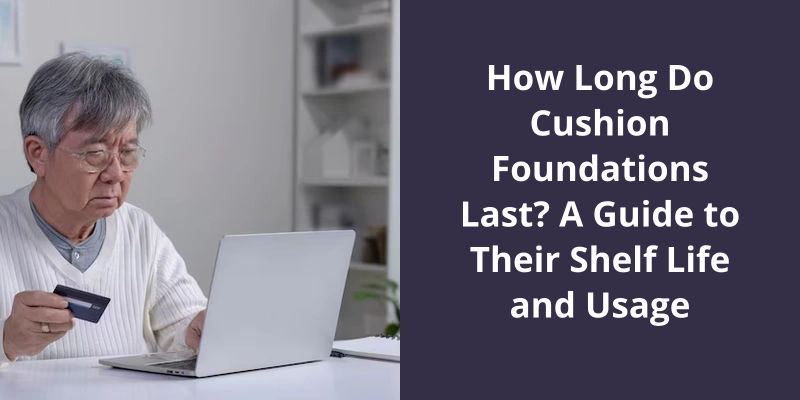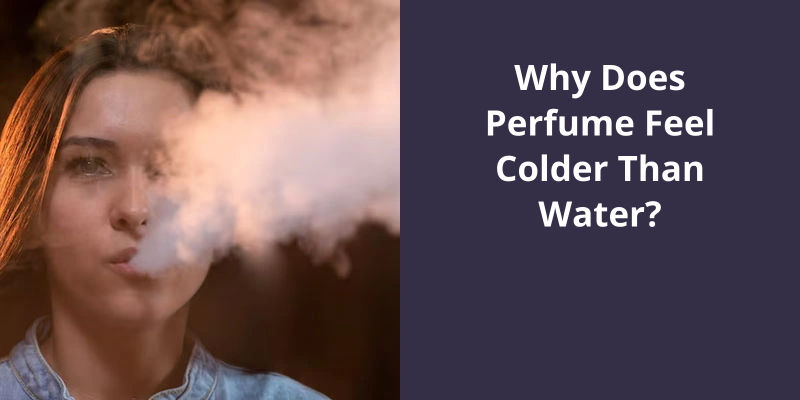A 7-year-old can potentially use perfume, but it’s important to ensure the product is safe for their sensitive skin. It’s recommended that children this age use scents that are specifically designed for kids, which are typically milder, hypoallergenic, and free from harmful chemicals. Rather than traditional perfumes, these are usually more like body sprays. Avoiding strong fragrances is also wise, so as to prevent any potential allergic reactions and health hazards, due to their immature immune system and developing respiratory system. Additionally, the spray should ideally be applied to clothing rather than directly onto skin, which should help minimize any possible skin irritation.

When Should Kids Start Wearing Perfume?
Firstly, a childs skin is sensitive and easily irritated, and wearing strong perfumes can cause allergic reactions or skin irritation. Additionally, the fragrances used in perfumes may contain harmful chemicals that can lead to respiratory problems if not properly ventilated. Therefore, it’s important to assess the ingredients and quality of any product before exposing young children to it.
Secondly, children may not have the level of self-awareness that’s needed to properly apply perfume and also know when to stop. They may end up using too much or apply it inappropriately leading to overpowering scents that can be overwhelming to them, their peers, and even adults around them.
For parents who appreciate a pleasant smelling child, natural fragrances such as lavender, vanilla, or citrus can be used. Natural fragrances are generally milder, and less overpowering than regular perfumes.
Fourthly, wearing perfume is often socially encouraged, which can lead to incorrect usage of perfumes by children. Parents need to educate their children on the appropriate usage of perfumes and also help them understand that it isn’t always necessary or desirable to wear it around other people.
Children need to develop naturally, and sometimes powerful fragrances can interfere with that process by suppressing or hindering growth in certain areas.
While there’s no fixed age that one should start wearing perfume, it’s generally advisable to wait till children attain a certain level of maturity and responsibility before allowing them to use regular perfumes. Parents can start with lightly scented body powders or natural fragrances and monitor their childrens reactions before exposing them to stronger scents. As a general rule of thumb – the younger the child, the less exposure to strong fragrances is recommended.
Different Types of Perfume and Their Fragrance Families
- Citrus – light and refreshing scents that feature notes of lemon, orange, lime, grapefruit, and bergamot
- Floral – sweet and romantic scents that feature notes of rose, jasmine, peony, lily, and violet
- Oriental – warm and spicy scents that feature notes of vanilla, amber, musk, and cinnamon
- Woody – earthy and natural scents that feature notes of cedar, sandalwood, patchouli, and oakmoss
- Aquatic – clean and refreshing scents that feature notes of oceanic smells, like saltwater, seaweed, and driftwood
- Fruity – sweet and tangy scents that feature notes of apple, raspberry, peach, strawberry, and pineapple
- Gourmand – delicious and edible scents that feature notes of coffee, chocolate, caramel, and vanilla
The cultural norms and traditions around wearing perfume vary widely across different parts of the world. While young American girls typically don’t start wearing perfume until they reach their early teens, in other regions, fragrance is a more integral part of everyday life, and even young children may be encouraged to experiment with different scents.
At What Age Do Girls Start Wearing Perfume?
In some parts of Europe, it isn’t uncommon for young girls to start wearing perfume as early as seven or eight years old. This is often seen as a cultural tradition, passed down from older generations, and is considered a rite of passage for young girls. However, the type of perfume used is usually very mild and subtle, and is intended to be a gentle introduction to the world of fragrance.
It’s simply a matter of personal preference and cultural norms. Some girls may start experimenting with different scents as early as five or six, while others may not start until they’re well into their teenage years.
This is partly due to the influence of social media and popular culture, which often promote the use of perfume as a symbol of femininity and sophistication.
Another factor that may influence when girls start wearing perfume is their level of exposure to different scents.
What Are the Risks of Wearing Perfume at a Young Age, Such as Allergic Reactions or Sensitivity to Certain Ingredients?
Applying perfume at a young age may pose certain risks such as allergic reactions and sensitivity to specific fragrance ingredients. These risks may vary depending on the individual’s personal health and sensitivity to fragrance chemicals.
Source: How Young Is Too Young for a First Perfume? – Yahoo
In order to avoid any possible negative effects of using expired cologne, it’s important to approach the situation with caution. While it may be tempting to use an old bottle of perfume to save money or hold onto a beloved scent, it’s vital to evaluate the risks before doing so. Here are some things to keep in mind when considering whether or not to use 10 year old cologne.
Can You Use 10 Year Old Cologne?
Fragrances, like many other products, have a shelf life. Most perfumes have a lifespan of three to five years, depending on the ingredients used. After this time, the fragrance may start to break down, which can cause it to smell different from how it did when it was first purchased. If you’re considering using a 10-year-old cologne, it’s best to test it before using it and to watch out for any unpleasant smells or skin reactions.
When testing an old cologne, it’s essential to be aware of any changes that may have occurred over time. The most obvious change you may notice is the scent itself. If the cologne smells different or off, it’s best to avoid using it. Another thing to look out for is the color of the fragrance. If the liquid has turned cloudy, it may not be safe to use as it could be contaminated.
If you do decide to use an old cologne, be cautious about how much you apply. Due to the perfumes breakdown over time, you may need to apply more to get the same strength of scent as a fresh bottle. However, this can also increase the risk of skin irritation or allergic reactions.
Finally, it’s essential to store colognes correctly so that they last as long as possible. Storing them in a cool, dark location can help prevent them from breaking down too quickly. Avoid exposing your fragrances to sunlight or heat, both of which can cause them to break down faster.
Testing the fragrance before use and storing it correctly can help ensure it’s still safe to apply. However, if the perfume has expired or shows any signs of spoilage, it’s best to dispose of it safely and replace it with a new one.
How to Properly Store Cologne to Extend It’s Lifespan
To extend the lifespan of cologne, it’s important to store it properly. This can be done by keeping it in a cool, dry place away from sunlight and heat sources. It’s also best to keep cologne in it’s original bottle and avoid transferring it to other containers. Proper storage can help preserve the scent and prevent the fragrance from degrading over time.
It’s always concerning to learn about potential dangers lurking in everyday products, especially when it comes to children’s health. Fragrances, commonly found in personal care and household items, have been found to contain harmful chemicals like phthalates and carcinogens. Allergic reactions and asthma attacks are also a risk for children and adults exposed to fragrance chemicals. So, are fragrances safe for kids? Let’s take a closer look.
Are Fragrances Safe for Kids?
The safety of fragrances for kids has been a topic of concern in recent years. Fragrances are used in a variety of personal care and household products, such as perfumes, colognes, lotions, soaps, and cleaning supplies. These products are marketed towards adults, but are also used by children, either intentionally or unintentionally.
Phthalates are a type of endocrine disruptor that are commonly found in fragrances. These chemicals can interfere with the bodys natural hormone system, which can have negative effects on growth and development, especially in children. They can also disrupt the reproductive system and increase the risk of certain cancers. Exposure to phthalates can occur through inhalation, ingestion, and skin contact, and can accumulate in the body over time.
Benzophenone and styrene are other chemicals commonly found in fragrances that have been classified as carcinogens. They’re known to cause mutations in DNA and increase the risk of cancer. Again, exposure to these chemicals can occur through various routes, including inhalation and skin contact. Children who’re exposed to these chemicals at a young age may have an increased risk of developing cancer later in life.
This includes symptoms such as skin rashes, hives, and respiratory problems such as asthma. Asthmatic children are at especially high risk, as exposure to fragrance chemicals can trigger asthma attacks. These reactions can vary in severity and can be difficult to diagnose, as fragrance chemicals are often not listed on product labels.
The best way for parents to protect their children is to read labels carefully and choose products that are free of fragrance or contain only natural fragrances. Parents should also avoid using scented cleaning supplies and air fresheners in their homes, as these can contribute to indoor air pollution and potentially harm childrens health. Ultimately, the goal should be to use products that are both effective and safe for children and other vulnerable populations.
Alternatives to Synthetic Fragrances in Personal Care and Household Products
- Essential oils
- Natural extracts
- Fruit and vegetable powders
- Herbs and spices
- Seed oils
- Flower hydrosols
- Glycerin
- Vinegar
- Citrus juices
- Baking soda
- Activated charcoal
- Clay powders
- Beeswax
- Cocoa butter
- Shea butter
It’s not uncommon to hold onto a favorite bottle of perfume long after it was gifted or purchased. While some may think that aging perfume can compromise it’s quality, the truth is that many perfumes can still be used even a decade after their creation. The key lies in understanding the ingredients and how the bottle is stored over time.
Can You Use 10 Year Old Perfume?
Perfumes usually contain a blend of essential oils, fixatives, and alcohol. The alcohol acts as a solvent that helps to dissolve and distribute the scent of the perfume. Over time, alcohol can evaporate and this can cause the scent of the perfume to change. The oxidation of the essential oils can also cause changes in the scent. Over time, the scent of a perfume can become weaker or it may change altogether. However, if the perfume has been stored properly, it can still be used even after 10 years.
Exposure to air, light, and heat can cause the perfume to break down and lose it’s fragrance. Perfumes should be stored in a cool, dry place away from direct sunlight. Keeping the perfume in it’s original packaging can also help to protect it from the elements. It’s also important to avoid exposing the perfume to extreme temperatures, such as leaving it in a hot car or in a freezer.
The type of perfume can also affect how long it lasts. Eau de parfum and parfum have a higher concentration of essential oils, which means they can last longer than eau de toilette or cologne. Additionally, some fragrances are more stable than others and can last longer without losing their scent. Fragrances that feature woodsy or floral notes tend to last longer than those that feature citrus or fruity scents.
If youre unsure whether a perfume is still good to use, you can try a simple sniff test. If the perfume has changed color or smells off, it’s likely no longer usable. However, if it still smells like it did when you first purchased it and hasnt changed in appearance, it’s likely still good to use. It’s important to note, though, that some people may have a sensitivity to certain fragrances and may experience skin irritation or an allergic reaction when using an older perfume.
Overall, if youve been holding onto a favorite perfume for a while, it’s likely still usable as long as it’s been stored properly and hasnt changed in appearance or scent. However, if youre unsure whether it’s still good to use, it’s always a good idea to do a patch test first to ensure that it won’t cause skin irritation or other unwanted effects. In any case, it’s always better to err on the side of caution.
Conclusion
With the risk of accidental ingestion or choking, it’s important for parents to carefully monitor and supervise their children when using perfume. It’s also advisable for parents to wait until their children are older and more responsible before allowing them to use any fragrances. Overall, the safety of young children should always be the top priority when it comes to the use of any potentially hazardous household products.





